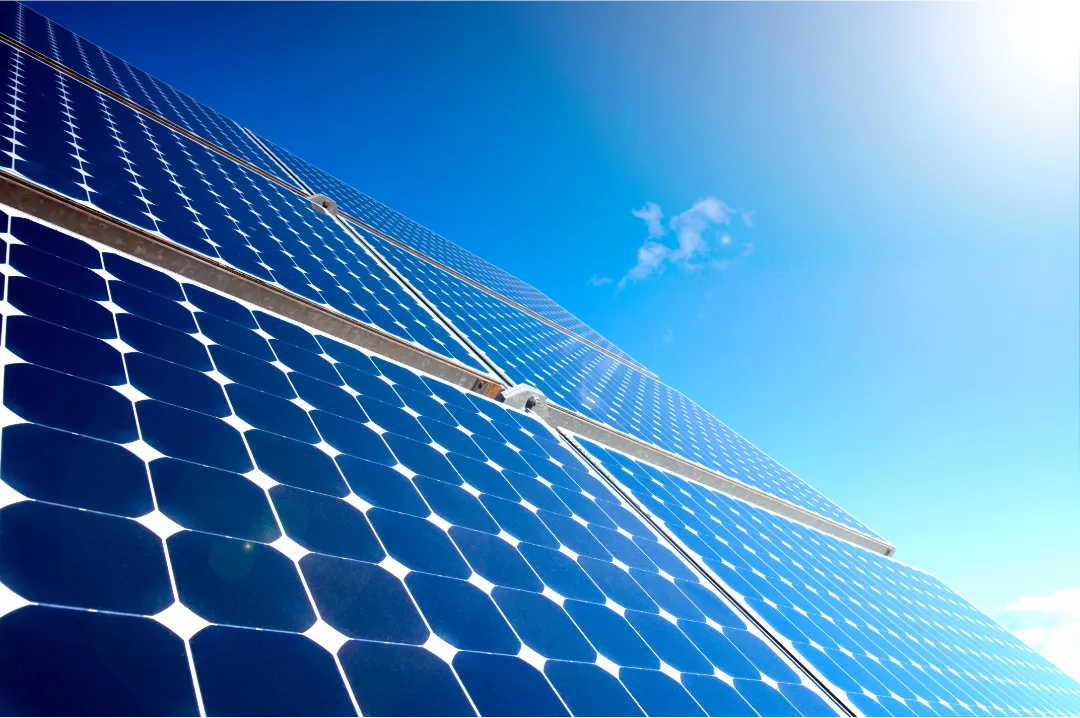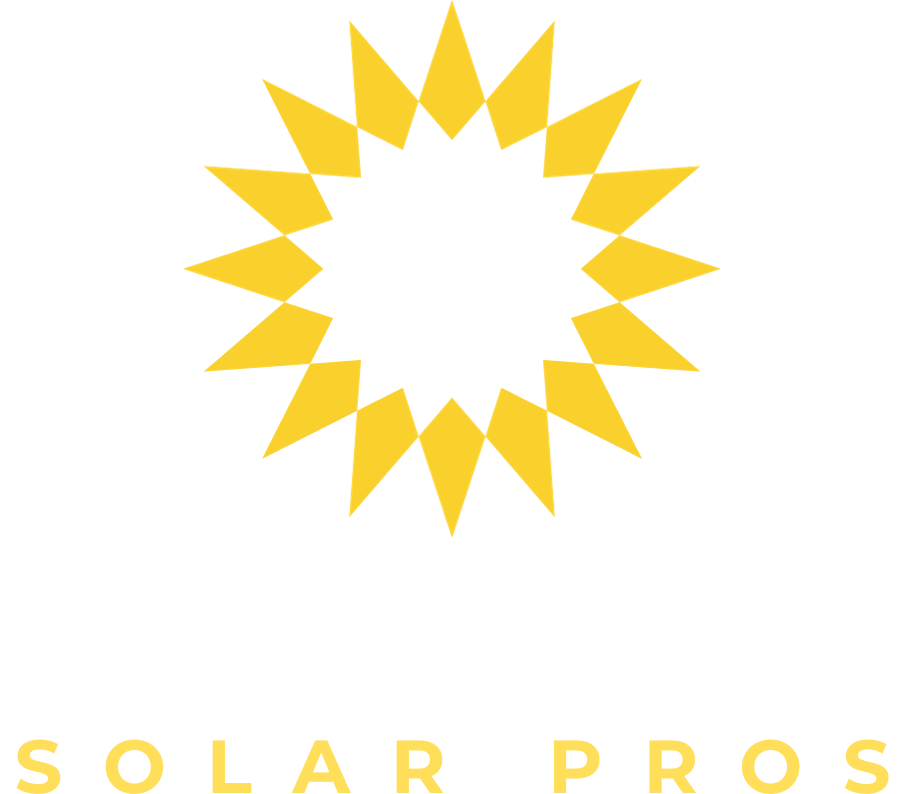DADE CITY SOLAR PROS BLOG
Welcome to our blog about all things solar energy.

Illuminate Your Future: The Ultimate Solar Energy Handbook
So, you're thinking about going solar. Well, buckle up, because we've got just the handbook for you. Illuminate Your Future: The Ultimate Solar Energy Handbook is here to shed some light on the world of solar energy. From the basics of solar power to choosing the right panels, navigating the installation process, and maximizing the benefits, this comprehensive guide has got you covered. But hey, we won't spoil all the surprises just yet. Trust us, you won't want to miss out on what's inside.
The Basics of Solar Energy
In this chapter, we will explore the fundamental principles and concepts behind solar energy. One of the key aspects of solar energy is its efficiency. Solar energy efficiency refers to the amount of sunlight that is converted into usable energy. It is important to maximize this efficiency in order to make the most of the available sunlight. Advances in technology have led to the development of solar panels that can convert a higher percentage of sunlight into electricity, increasing overall efficiency.
Another important consideration when it comes to solar energy is storage. Solar energy storage is crucial because sunlight is not available 24/7, and energy needs to be stored for use during cloudy days or at night. There are various methods of storing solar energy, including batteries, thermal storage, and pumped hydro storage. These storage solutions help ensure a continuous and reliable supply of electricity even when sunlight is not readily available.
Choosing the Right Solar Panels
Now that we have explored the basics of solar energy, let's dive into the process of selecting the most suitable solar panels for your energy needs. When it comes to choosing the right solar panels, two key factors to consider are solar panel efficiency and solar panel types.
Solar panel efficiency refers to the amount of sunlight that can be converted into usable electricity. Higher efficiency panels are able to generate more electricity from the same amount of sunlight, making them a popular choice for those looking to maximize their energy production. However, it's important to note that higher efficiency panels can also come with a higher price tag.
When it comes to solar panel types, there are three main options: monocrystalline, polycrystalline, and thin-film. Monocrystalline panels are known for their high efficiency and sleek appearance, but they tend to be more expensive. Polycrystalline panels, on the other hand, are more affordable but generally have lower efficiency ratings. Thin-film panels are the least efficient but are also the most affordable option.
Understanding Solar Power Systems
Let's dive into the intricacies of solar power systems and how they harness the sun's energy to generate electricity. Understanding the efficiency of solar power systems is crucial in maximizing their output. Solar power efficiency refers to the amount of sunlight that a solar panel can convert into usable electricity. Factors such as the type of solar panel, quality of materials, and proper installation play a significant role in determining the efficiency of a system. Higher efficiency means more electricity can be generated from the same amount of sunlight, resulting in greater savings on energy bills.
In addition to efficiency, solar power maintenance is essential for the optimal functioning of the system. Regular maintenance ensures that the panels are clean and free from any debris or shading that could hinder their performance. It is recommended to inspect the system at least once a year and clean the panels as needed. This can be done by using a soft brush or a mild detergent solution. It is also important to monitor the system's performance through its monitoring system or software to identify any issues and address them promptly.
Understanding the intricacies of solar power systems, including efficiency and maintenance, is key to reaping the benefits of solar energy. By optimizing efficiency and performing regular maintenance, you can ensure that your solar power system operates at its highest potential, providing clean and sustainable electricity for years to come.
Financing Options for Solar Installation
We can explore various financing options available for solar installation to make it more affordable and accessible for homeowners and businesses alike. One popular option is taking advantage of government incentives. Many governments offer financial incentives, such as tax credits or grants, to encourage the adoption of solar energy. These incentives can significantly reduce the upfront costs of installing solar panels, making it a more viable option for many people.
Another financing option is leasing. With a solar lease, homeowners or businesses can lease solar panels from a solar company. This allows them to enjoy the benefits of solar energy without the high upfront costs of purchasing the system. Instead, they make monthly lease payments, which are often lower than their current electricity bills. Leasing also provides the added benefit of maintenance and system monitoring, which is typically included in the lease agreement.
In addition to government incentives and leasing options, there are other financing options available, such as solar loans and power purchase agreements (PPAs). Solar loans allow homeowners or businesses to finance the purchase of a solar system, spreading the cost over a period of time. PPAs, on the other hand, involve a third-party company installing and maintaining the solar panels on the property, and the homeowner or business agrees to purchase the solar energy generated at a predetermined rate.
Navigating the Solar Installation Process
After exploring the various financing options available for solar installation, it is essential to understand the process involved in navigating the installation itself. One crucial aspect to consider is the permitting requirements. Before you can begin installing your solar panels, you must obtain the necessary permits from your local authorities. These permits ensure that your installation meets all safety and building code regulations. It is important to research and understand the specific requirements in your area to avoid any delays or complications during the installation process.
Once you have obtained the necessary permits, it is time to move forward with the installation. It is highly recommended to hire a professional solar installer for this step. They have the expertise and experience to ensure that your panels are properly installed and connected to your electrical system. Additionally, hiring a professional installer can help you avoid any potential issues that may arise during the installation process.
After the installation is complete, it is important to understand the maintenance and troubleshooting involved with solar panels. Regular maintenance, such as cleaning the panels and inspecting for any damage, is crucial to ensure optimal performance. In case of any issues or malfunctions, it is advisable to contact your installer or a solar technician who can diagnose and fix the problem.
Maximizing the Benefits of Solar Energy
To fully capitalize on the advantages of solar energy, it is vital to implement effective strategies for maximizing its benefits. One of the key strategies is increasing efficiency in solar energy systems. By using high-quality solar panels and optimizing their placement and orientation, we can ensure that we are generating the maximum amount of electricity from the available sunlight. Additionally, regular maintenance and cleaning of the panels can help minimize any efficiency losses due to dirt or debris.
Another important aspect of maximizing the benefits of solar energy is solar energy storage. While solar panels generate electricity during the day, there may be times when the demand for electricity is low or when the sun is not shining. In such cases, having an efficient solar energy storage system can be extremely beneficial. Batteries, such as lithium-ion batteries, can store excess energy generated during the day and provide electricity during the night or during periods of low sunlight. This allows for a more consistent and reliable supply of electricity, reducing reliance on the grid and maximizing the use of clean, renewable energy.
Conclusion
In conclusion, solar energy is a renewable and sustainable source of power that has the potential to revolutionize our future. By understanding the basics of solar energy, choosing the right panels, and navigating the installation process, we can maximize the benefits of this clean energy source. With financing options available, anyone can contribute to a greener future and illuminate their path towards a more sustainable tomorrow. So let's embrace solar energy and unlock its full potential for a brighter future!
Connect With Us
Locations We Serve:
© Copyright 2026 Dade City Solar Pros. All Rights Reserved.
Terms & Conditions | Privacy Policy

